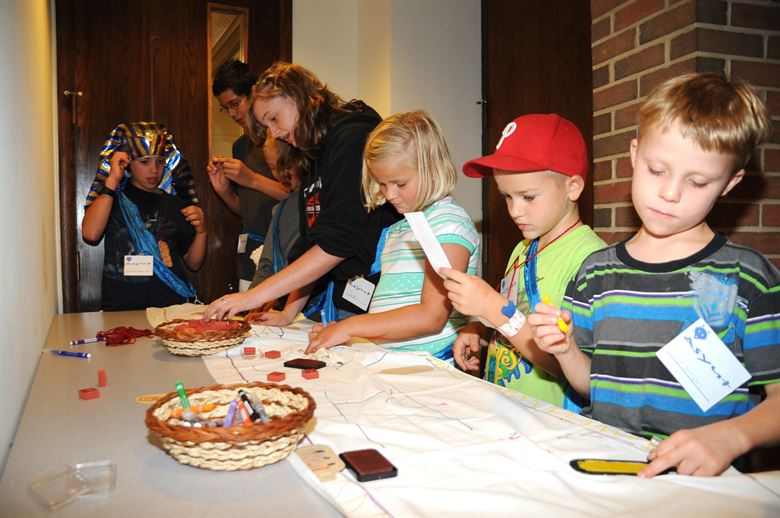Smita is a mother of two young kids aged: 7 years and 4 years. She is after her kids most of the times to do household chores. She emphasizes them to learn small little tasks that could help them when they grow up. She thinks this can help in their self development and they would be more independent.
But on the other hand, her husband thinks just the opposite she does. He considers their kids very small and not suitable for doing any household chores.
Such conflicts are very common in any house in today’s time especially when there are grandparents also. Because, in that case there are then three generations at home, and all having different opinions and thoughts.
Many parents will not agree with the thought of engaging their kids in daily chores. They believe them to be tiny souls, insufficient for self-care and to carry the burden of responsibility on their shoulders. But engaging kids in daily chores and assigning them to age-appropriate tasks can have a positive impact on your kid’s overall physical, mental, cognitive, social growth and development.
Indulge your kid in cleaning the bedroom, preparing a meal, cleaning house, taking care of sibling or pet or outside chore. This way you are preparing them to face hurdles of later life.
Small kids are generally proactive, but as they get older, start to defer commands, reasons may be lethargy, studies, school work or other time demanding indulgences or divergences.
Here, I would like to add one thing. No Gender biasing, please! Daily chores are like learning life skills which should not be categorized into gender-specific tasks. Every individual should learn and do them irrespective of gender.
Let’s see what are the benefits of engaging your child in daily chores.
1. A way to self-sufficiency
First and foremost thing in life is to gain self-sufficiency and become self-dependent. As a child I used to procrastinate things, however, my father used to tell ”learn everything to be self-sufficient” whether you are going to do it or not in the future, even for supervising somebody, you need to procure knowledge of task first. First time when I stepped outside my home for my studies, away from my parents, I was a teenager, only then I realised that his advice was undeniably correct.
2. Channelling energy
Kids are like blast furnaces, constantly generating immense energies, it’s very important to provide a proper vent to divert surplus energies. Engaging them into daily chores can channelise them in a constructive and productive way. It is better if the child is engaged in the chores rather than sticking to television, computers, video games for time pass.
3. Skill building
Life is unpredictable, life skills teach your kid to adjust and mould according to circumstances. You cannot be omnipresent for your kid, whole life. Life follows Darwin’s laws: Struggle for existence and Survival of the fittest. The ultimate aim of life is to learn how to live life skillfully- life skills, which no books can teach. Not being taught the skills of everyday living can limit children’s ability to function at age-appropriate levels.
Giving chores to your kid can teach the skill required for the completion of an assigned job. It is not necessary that a kid shall do things with 100% perfection but in future kid shall do it perfectly.
4. How things work and development of a sense of judgement
A kid can absorb many good things, subconsciously through household chores. A child realises that it takes efforts to complete tasks, no magic wand exists. They would not their parents for granted. The lesson of life cannot be learnt merely by reading books. Let your kids make mistake, learn and correct themselves on their own. Daily chores allow our children to develop an insight into how the world works. For instance, engaging your kid into gardening shall actually let your kid know how plants are grown, dusting and mopping shall tell them the importance of cleanliness etc. Also, kid shall develop a helping nature or limit being self-absorbed. Engaging in daily chores makes your kid organised, clean and tidy. They would come to know the actual effort required to do things.
5. Cultivates patience, sense of responsibility and self-worth
To rise every morning and follow the same monotonous routine with enthusiasm needs patience. Eating food may be a matter of a few minutes, but cooking is a lengthier chore, again demands endurance. Take help of your kid in assisting you to prepare food, arranging dishes on the dining table or wiping or arranging utensils after wash. This will become more useful as your child gets older and has more responsibilities at school and at home. Daily chores create a sense of self-worth in the kid. Making a grocery list and managing funds, calculating monthly expenses would provide insight into monitory issues of the family.
Giving kids chores can build self-esteem. Getting a chore done and doing it well can give your child a major sense of accomplishment, boosting their morale.
6. Better relation build up
A kid helping in household chores would feel to be an integral part of the family. The sense of being connected or an important contributor to the family shall be confidence and security in a kid. A child can understand human nature and expectations of others. Doing chores gives a child the opportunity to give back to their parents for all you do for them.
8. Team spirit
Taking help of the kid in your daily chores shall make your kid understand the importance of teamwork and integrity. In the modern era, where both father and mother are the breadwinners for the family, it is essential to share the load in order to overburden one person.
9. Hands-On Movement will help the Child With Gross And Fine Motor Skills
Have you ever thought, why cannot a child get up and run straightaway, hold and write with a pen perfectly, this is because a kid lacks strength in the muscles required to do the above-mentioned developmental milestones? With time these muscles gain strength.
Fine motor skills involve the movement of the smaller muscle groups in your child’s hands, fingers, and wrists. Fine motor skills are required for holding, manipulating and grasping things, any work where coordination and precision of hand muscles are required – writing, drawing, painting etc. Gross motor skills involve movements of the larger muscle groups, like the arms and legs. Engage small children to house chores would help them to strengthen muscle required for fine and gross motor skills. Helping in the kitchen by measuring ingredients or drying dishes; helping in the garden by raking dirt or pulling weeds, and even chores such as dusting or sweeping, are great for gross motor skills. Try to make chore session into fun and learning session. You can take help of your kid to count potatoes, eggs etc. This would enhance his mathematical skills!
10. Delayed Gratification
Kids wish to have the immediate gratification of needs, which crop up interpersonal, familial conflicts and adjustment issues. Kids who are able to delay gratification are much more likely to do well as they grow up, more socially competent and better able to deal with frustration.
Expecting children and teens to take an active part in running a household gives them plenty of opportunities to gain positive coping skills that help them control their impulses and delay gratification.





